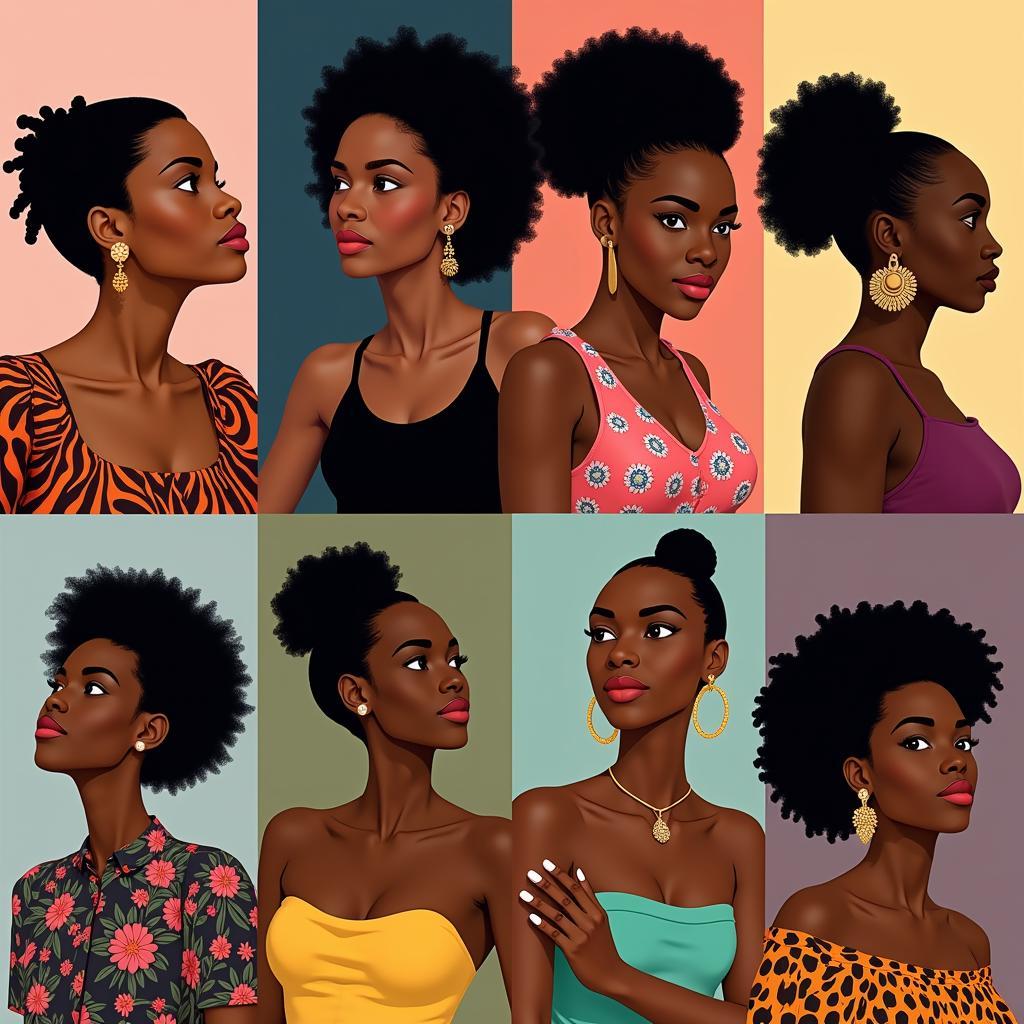Unveiling the Complexities: When an African Girl Follows White Men
The dynamic of an African Girl Following White Men is a multifaceted issue that transcends simple explanations. Often, we encounter this topic met with judgment and quick conclusions, but the reality is far more nuanced. It’s crucial to delve deeper than surface-level observations to understand the historical, societal, and personal factors that contribute to this complex phenomenon.
Delving into the Historical Narrative
Colonialism’s legacy casts a long shadow across Africa, impacting social structures and individual perceptions. The historical context of white supremacy during colonial rule cannot be ignored. This system often positioned white men as figures of power and privilege, while simultaneously devaluing African cultures and identities. This power imbalance, ingrained over generations, can unconsciously influence perceptions of desirability and status.
Unpacking Societal Influences
Modern media further complicates the narrative. The overrepresentation of Western beauty standards and lifestyles in global media can create a sense of aspiration, particularly among younger generations. This exposure can fuel a desire for proximity to what is perceived as “modern” or “desirable,” which unfortunately, is often associated with whiteness.
Furthermore, societal pressures within certain African communities can contribute to this phenomenon. Colorism, a prejudice favoring lighter skin tones, is deeply ingrained in many cultures and can lead to internalized bias. This bias can manifest as a preference for partners with lighter skin, reflecting a deeply rooted social hierarchy that needs dismantling.
Exploring Personal Motivations
It is crucial to remember that every individual, including every African girl, is unique with her own story and motivations. Attributing a singular explanation to a diverse group of individuals is reductive and dismissive of their individuality.
Some women may be drawn to individuals from different cultures due to genuine attraction, shared values, or a desire to experience life beyond their immediate environment. Others may seek relationships with individuals who represent opportunities for economic advancement or social mobility, particularly in contexts where poverty and limited opportunities are prevalent.
Challenging Stereotypes and Promoting Understanding
Instead of resorting to generalizations, let’s engage in conversations that acknowledge the historical burdens, societal pressures, and individual experiences that contribute to this complex issue. We must approach this topic with sensitivity and empathy, recognizing that reducing individuals to simplistic narratives is neither accurate nor productive.
 Navigating Cross-Cultural Relationships
Navigating Cross-Cultural Relationships
Moving Towards a More Inclusive Future
It’s time to move beyond judgment and embrace nuanced discussions that foster understanding and challenge harmful stereotypes. Let’s work together to build a world where individuals are free to make choices based on genuine connection and personal agency, free from the weight of historical baggage and societal pressures.

